Hanukkah 2021 in Israel
It’s been a mad few days in Israel (and much of the world!), as news of the Omicron variant has emerged. After almost two years of being closed to tourists, Israel opened its borders for those who were excited to visit, on November 1st. Now, less than a month later, the borders are closed again - and no one is quite sure for how long.
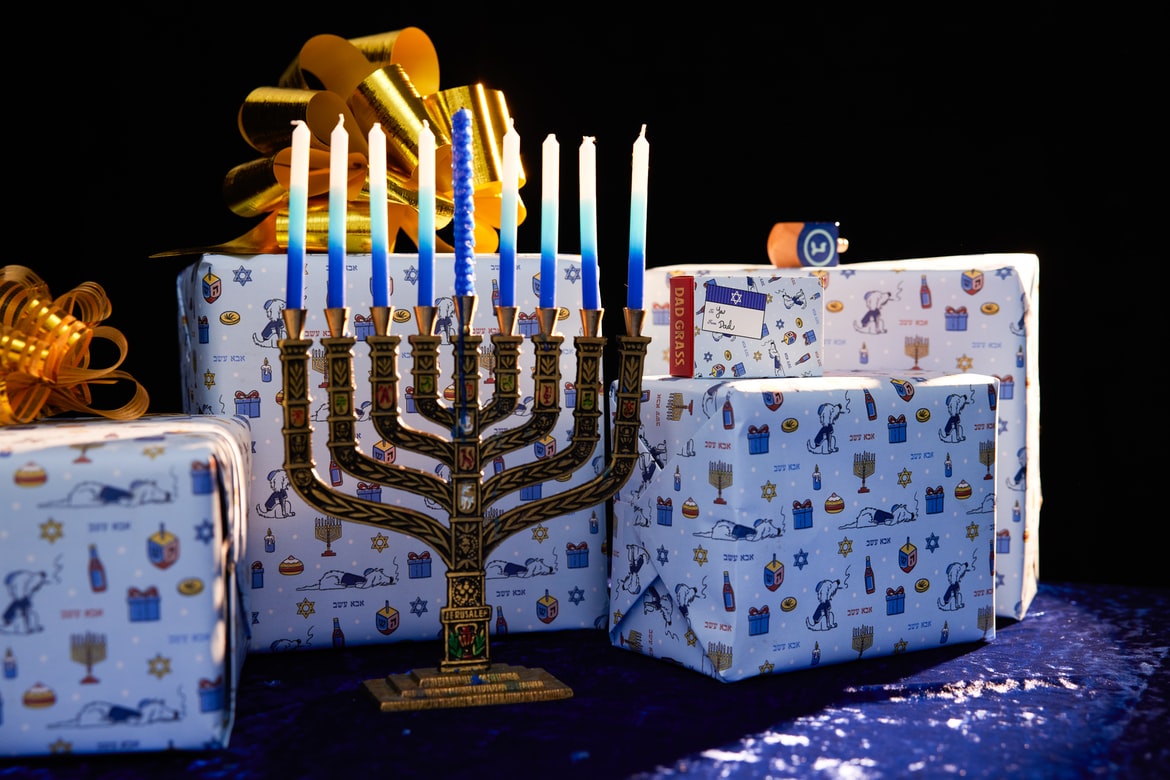
Celebrating Hanukkah, the Festival of Lights. Photo by Dad Grass on Unsplash
But just as we can’t see any more light at the end of the tunnel, one of Israel's favorite holidays (especially for kids) has arrived and we’re now almost halfway through. Yes, Hanukkah is upon us and this ‘Festival of Lights’ isn’t just a chance to enjoy the blaze of candles and chow on some delicious fried foods but also to celebrate a miracle that occurred, a long time ago, in a Temple in the Holy Land.
Today, we’re giving you the run-down on this much-loved Jewish festival, which isn’t by any stretch of the imagination Christmas but has plenty to offer both young and old, all over Israel. What is this holiday? Why do Jews light candles and spin a strange-looking toy called a ‘dreidel?’
And why - everywhere you look - are bakeries from Tel Aviv and Jerusalem to the Galilee and Eilat suddenly filled with delectable sweet treats in the shape of donuts? Here we go - and, as we say in Hebrew - Chag Sameach! (That’s ‘Happy Holidays’ if you don’t know!)
Hanukkah donuts in Israel. Photo by Elisheva Gohar on Unsplash
What exactly is Hanukkah? When is Hanukkah celebrated in Israel?
Hanukkah is an eight-day festival in the Jewish calendar that falls in the winter (any time between late November, and late December. It falls on the 25th day of the month of Kislev and because the Hebrew calendar (unlike the Gregorian one) is based both on the sun and the moon, the exact date will change every year.
The most common way to observe it is by lighting candles on a candelabrum which in Hebrew is called a Hannukiah (or menorah). This lamp has nine branches. Eight of them represent the eight days of the festival and the ninth is used to light the other candles - this one is called the ‘Shamash’ (which in Hebrew means ‘attendant’ or ‘helper’). Each night, one more candle is lit until, on the last night of the holiday, the entire menorah is ablaze with candles.
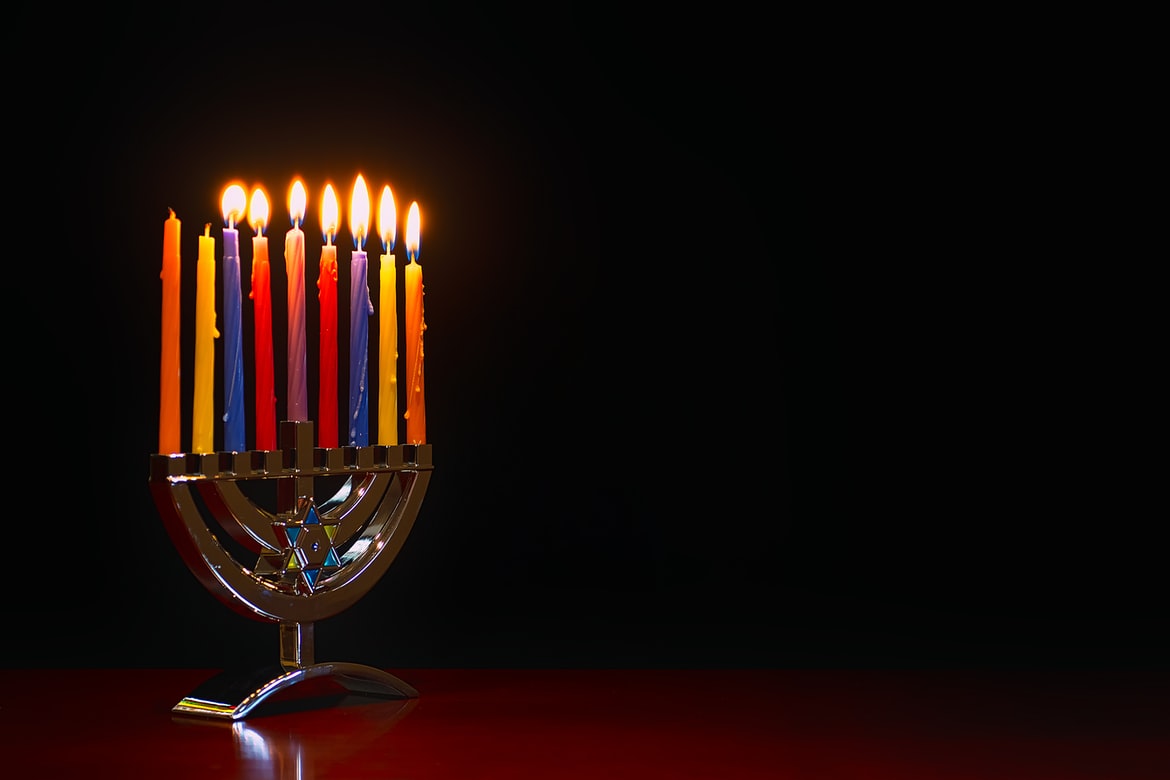
Hanukkah menorah. Photo by Robert Thiemann on Unsplash
What does Hanukkah mean and what’s the history behind Hanukkah?
In Hebrew, the word ‘Hanukkah’ means ‘dedication’ and this festival commemorates an important historical event for Jews, which took place in the 2nd century before Christ was born. At this time, the Greek Empire ruled over what is now Israel and in 168 BCE, King Antiochus forbade Jews to practice their own religious traditions.
Even worse, in keeping with their Hellenistic customs, the Jewish Temple in Jerusalem was defiled, with an altar to the God Zeus put up, at which pigs were slaughtered. (Judaism forbids the worship of idols, and the eating of pork is also strictly forbidden according). The Maccabees, a small army of Jews, refused to bow down and, after a struggle, won back control of the Temple, took down the altar to Zeus and built a new one at which they could offer sacrifices in accordance with Jewish law.
In the process, according to the rabbis of the Talmud (a book of Jewish teachings compiled between the 3rd to 6th centuries), a great miracle occurred. The sages recount that, at that time, there was only enough oil in the Maccabees lamps to keep the Temple’s menorah burning for one day. But, amazingly, the flame did not burn out - it blazed for a full eight days, by which time a new supply of oil had been found. This story really sets the tone for the entire holiday.
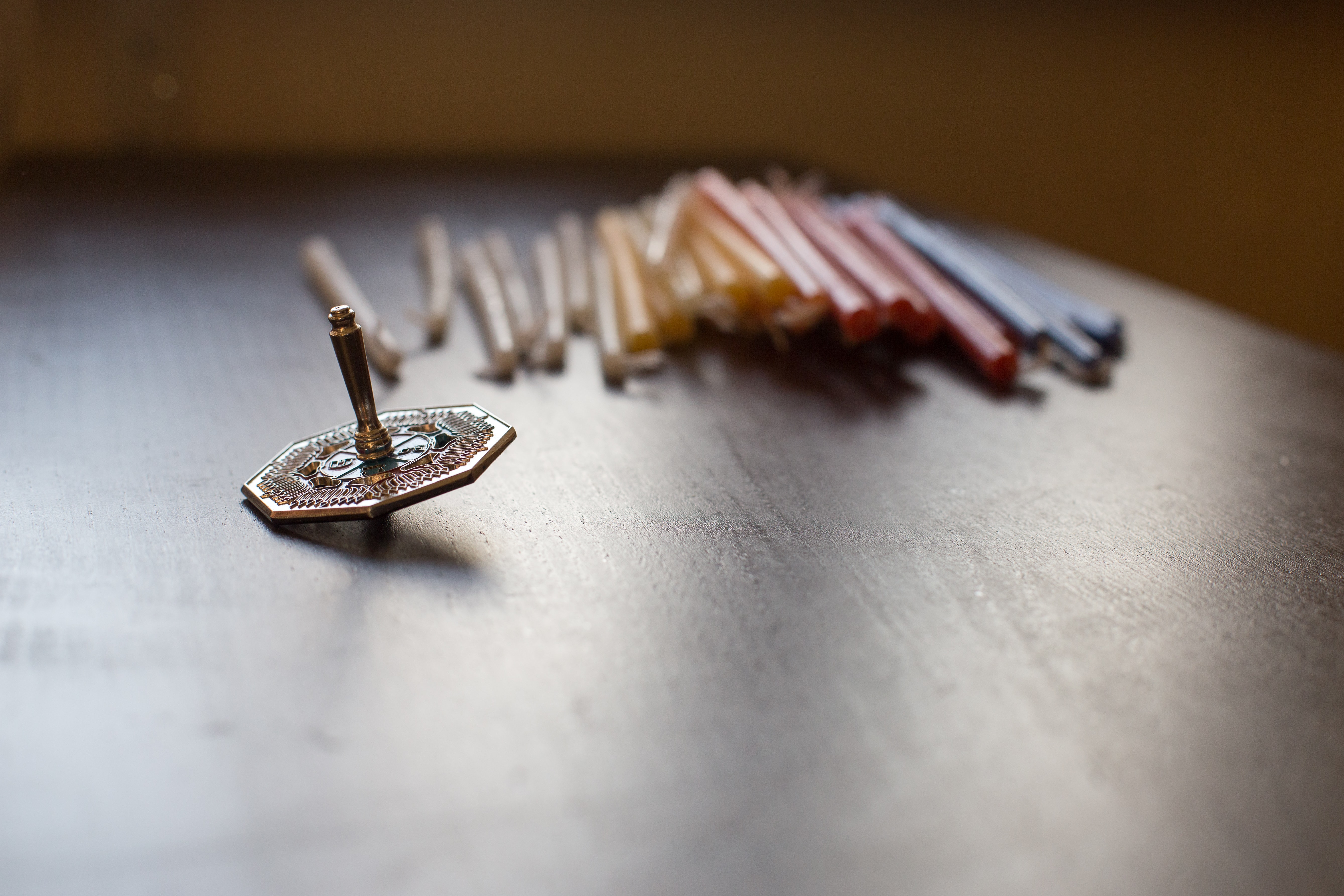
Sevivon or dreidel with candles for Hanukkah celebration. Photo by Tetiana SHYSHKINA on Unsplash
Christmas vs Hanukkah in Israel
So, is Hanukkah a big deal in Israel? What’s also interesting, however, is how many people have begun equating Hannukah with Christmas, even though - in fact - Hanukkah is a minor Jewish festival, compared to, say, Passover (celebrating the exodus of the Jews from slavery in Egypt) or Yom Kippur (the holiest day in the Jewish year, when people fast for 25 hours and pray to be forgiven for their sins).
This is not to say that Hanukkah isn’t fun - it is! And especially as the State of Israel has grown older, more and more Hanukkah events have sprung up across the country, since this is a week at which children are not at school (meaning many Israeli parents are looking for activities to keep their broods occupied!) If you want an idea of some of the places you can visit, all across Israel, during this week, keep reading to the bottom of this page!
Christmas tree and Star of David. Photo by Markus Spiske on Unsplash
What are the Hanukkah customs and traditions?
There are many incredibly fun and charming ways to celebrate this festival, and you don’t have to be young to do so!
1. Lighting Hanukkah candles - in Israel, it’s traditional for family, friends, and even work colleagues, to gather together each night of the holiday and light candles as dusk turns to dark (Hebrew festivals always begin at sundown). In some homes, every child has their own ‘hanukkiah’ which they themselves light (with a little parental supervision). If you go into any supermarket, you’ll also see boxes of brightly colored Hanukkah candles, made especially for this time of the year.
In Israel (as well as in major cities across the world now, such as London, New York, and Moscow) there are also public lightings of huge Menorahs. This year, in Tel Aviv, you can go to Rabin Square or Habima Square to see it, and in Jerusalem head to the Kotel - the Western Wall - where it will be lit each evening at 16.30 by different rabbis and known figures in Israel.
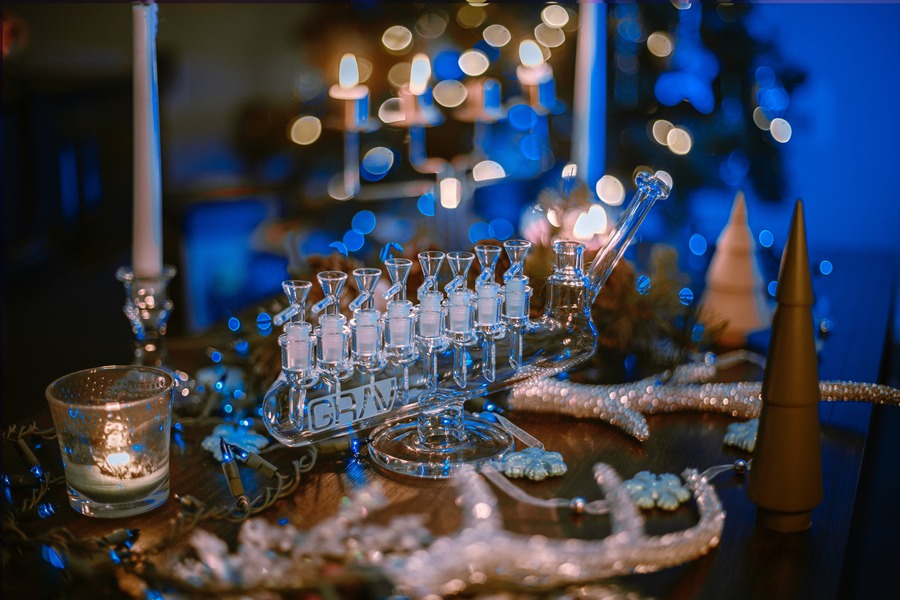
Glass hanukkiah. Photo by Grav on Unsplash
2. Eating sufganiyot (fried Hanukkah donuts) - this is a great time-honored tradition in Israel. There is some argument as to where in Central Europe the donut became fashionable but, for sure, Polish Jewish immigrants who arrived in Palestine in the 1930s brought their ‘ponchiks’ with them.The ‘sufganiyah’ is still incredibly popular today, all over the country, both with kids and adults. In years gone by, they were quite simple creations - donuts (fried in oil) with jam in the center and a sprinkling of white powdered sugar atop. But as more and more fancy bakeries have sprung up in Israel, so have the variations on a theme.
Today, if you walk the streets of Tel Aviv for instance, you’ll be confronted by all manner of delicious creations. So if you have a sweet tooth, you’re in for a fabulous eight days since the flavors are endless - caramel, pistachio, chocolate with Oreos, raspberry, lemon, and praline, to name a few.
At the Roladin bakery (which has branches across the country) you’ll even see people standing in line, waiting to pick up boxes of extraordinary creations. OK, ok, they’re not the healthiest treat and guaranteed to go straight to your hips, but there’s no shame in indulging in one or two (or if you’ve no willpower, one each evening…)
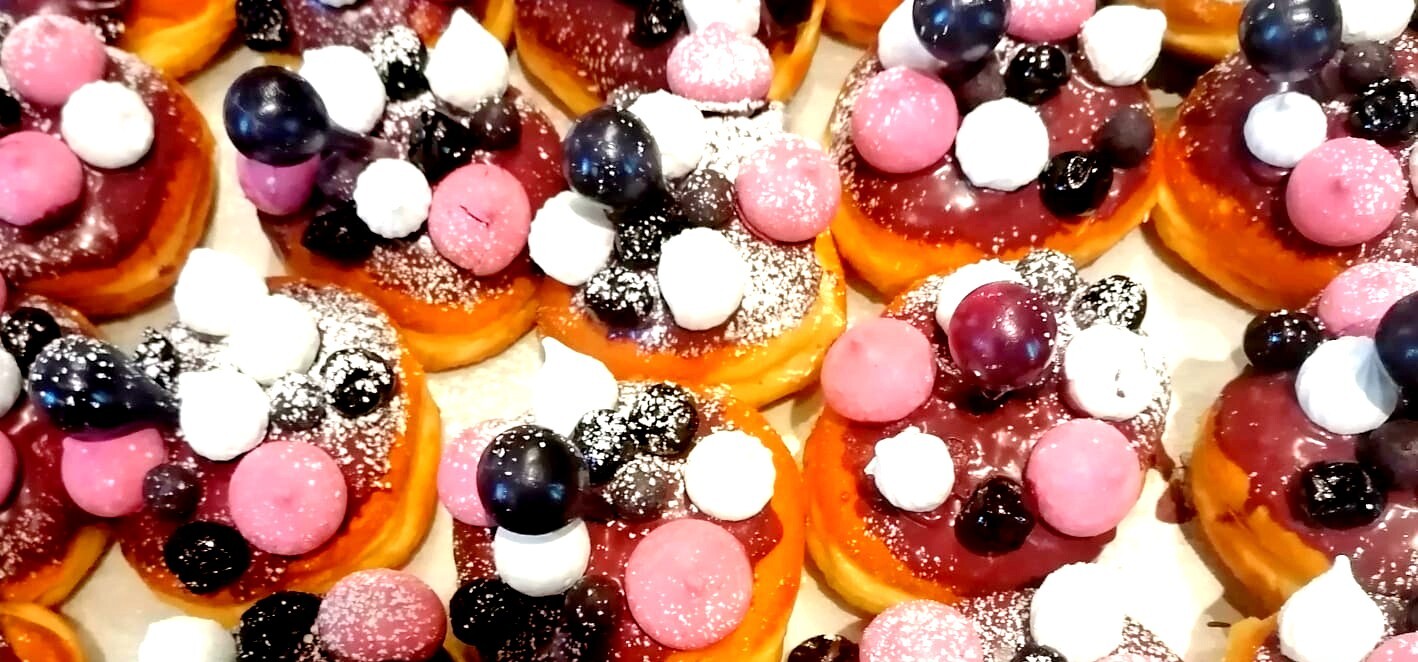
Hanukkah decorated donuts, Tel Aviv. Photo credit: © Sarah Mann
3. Cooking up a batch of latkes - these delectable potato bites are eaten - just like donuts - to symbolize the miracle of the oil that survived all of eight days in the Temple. The word itself derives from the Yiddish language and means ‘ little pancake’. Traditionally they are made from potato and onion and served piping hot either with sour cream or applesauce. In recent years, however, Israelis are experimenting with beetroot, plantain, carrot, and even broccoli!4. Giving your kids some ‘Hanukkah gelt’ - both in Hebrew and in Yiddish, ‘gelt’ means ‘money’ and these chocolate coins are a favorite treat for kids of all ages. It’s actually a long-standing tradition, which began in the 17th century when Polish Jews gave money to their children to distribute, in turn, to their teachers.
5. Spinning the dreidel - the dreidel is a spinning top with four sides, each one with a Hebrew letter - nun, gimel, heh, and shin respectively. These stand for ‘Nes gadol haya sham’ which means ‘ A great miracle happened there.’ When children spin it, whilst playing the game, the letter on which it stops decides how many points they will receive. Dreidel, in Hebrew, is ‘Sevivon’ and children also sing songs about this as they play.
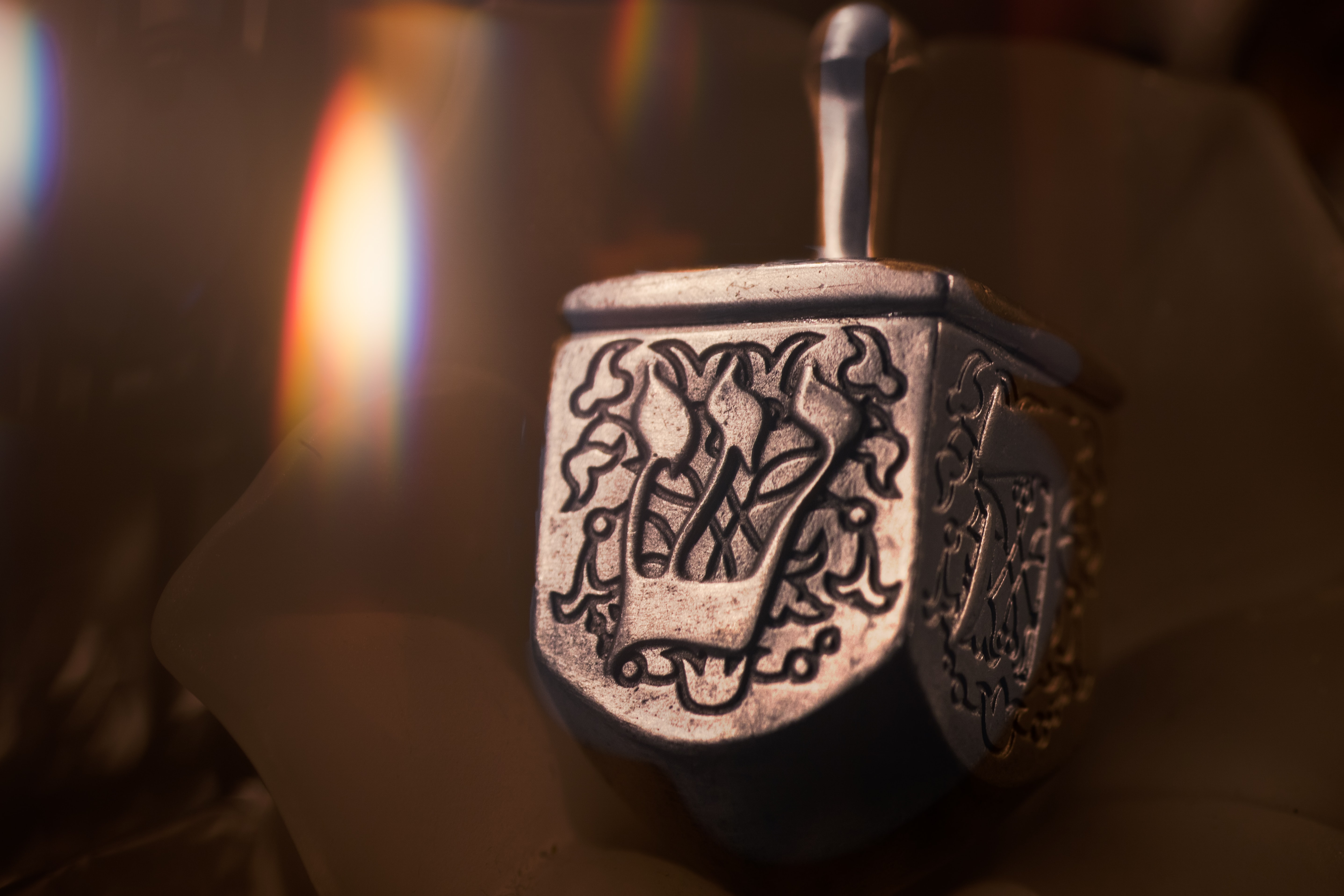
The Hebrew letter Shin on the dreidel. Photo by Robert Zunikoff on Unsplash
What’s going on across Israel at Hanukkah time?
From the big cities to smaller towns, there’s plenty going on this week. Here are some of the highlights we’d recommend (though,m of course, because of Corona, please check in advance to make sure the activity scheduled is actually going ahead).
Hanukkah 2021 in Tel Aviv
Children’s Film Festival at the Cinematheque - this 5-day extravaganza has something for everyone in the family. The famous independent cinema has sourced movies from across the globe, with children in mind. The holiday atmosphere in Tel Aviv Cinematheque is also enhanced with donuts, lights, and creative workshops for young adults in mind (especially those with an interest in filmmaking).
‘Vintage Me Up’ - if you’re a fashion lover, this is the event for you. Held at ‘The Little Prince’ on Nahalat Binyamin street near the famous Carmel Market, you can explore 14 different vintage stores from across the country, all in one spot. There are also snacks and drinks on offer, as well as some good Israeli music (nostalgic and contemporary).
Sketchfest - this festival of sketch comedy is all about celebrating and writing this interesting art. Writers will get together, discuss their ideas, draft stories and then have the opportunity to perform them on 4th December at two live performances.
Shapira Light Fest - held in this hipster Tel Aviv neighborhood, this local produce festival features homemade food, local art, and second-hand clothing for sale. As you eat and shop, local musicians will toot their stuff in the background - vocals, wind, bass, you name it. Kids will enjoy the painting workshops and if you’re a night owl then hang around for the DJ party.
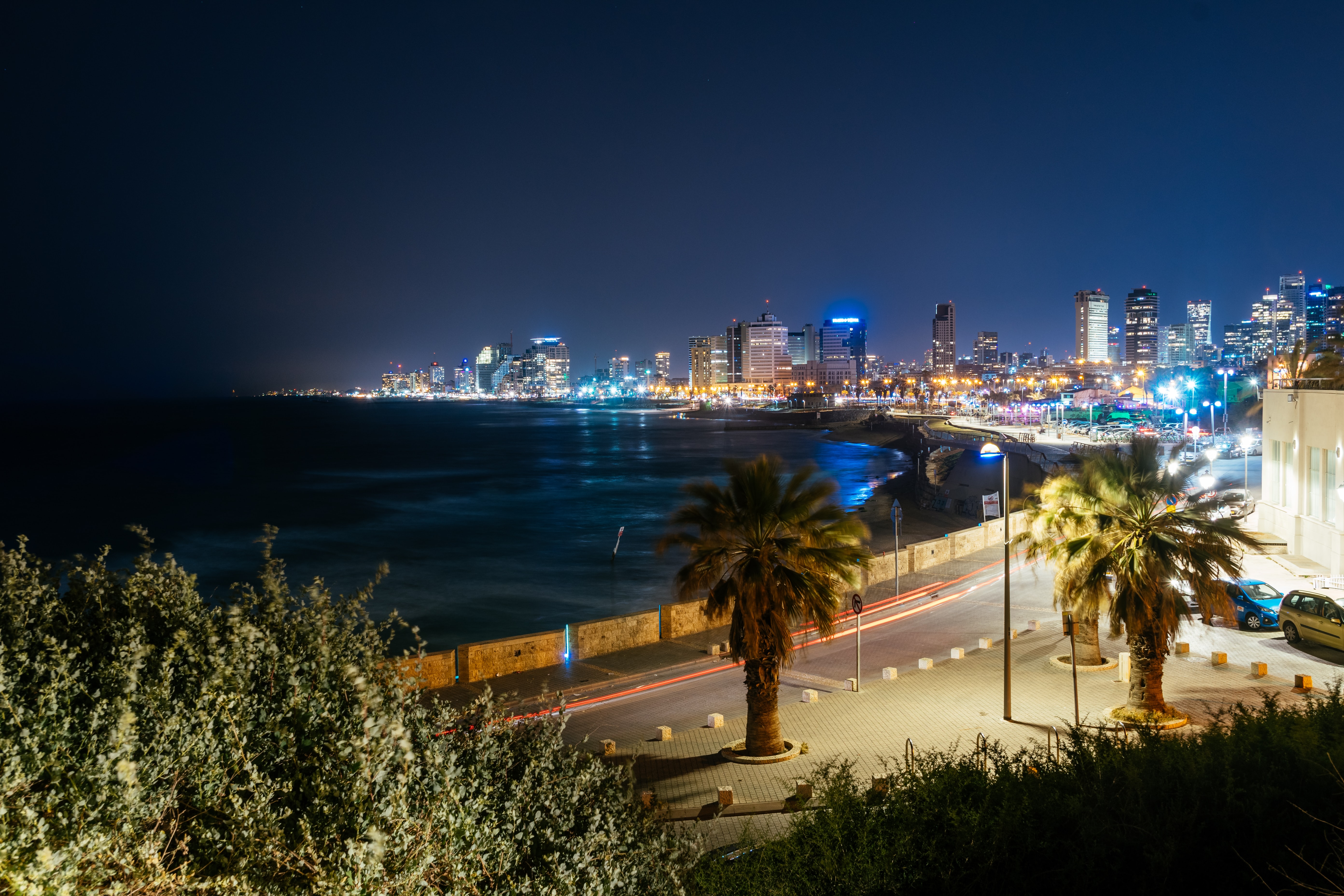
Tel Aviv at night. Photo by Kai Pilger on Unsplash
Hanukkah 2021in Jerusalem
At the Kotel - as we mentioned above, a Menorah is lit every night at 4.30 pm at the Western Wall, in the Old City, and it’s a spectacular sight. Whether it’s your first time in Israel or you’re a returning visitor, there’s nothing quite like standing in front of the last remaining wall of the Second Temple, with hundreds of locals both praying and celebrating.
The Israel Museum - the world-famous Israel Museum in Jerusalem is always worth a visit but never more so at this time of the year when it hosts all kinds of activities that are perfect for the whole family. These include storytelling, art workshops, and guided tours.
Tower of David - meet historical figures, solve ancient mysteries, take a fun tour game and climb up to an observation point that gives you a fabulous view of all of Jerusalem. Yes, the Tower of David is a wonderful place to visit, whatever your age, at Hanukkah!
Strolling in the Old City - the Old City of Jerusalem is a truly magical place and something lovely to do at Hanukkah is a stroll in the narrow streets of the Jewish Quarter and admire all the individual menorahs lit up in the windows of local homes. To see the Hanukkah celebration in Jerusalem, join one of our Jerusalem tours!
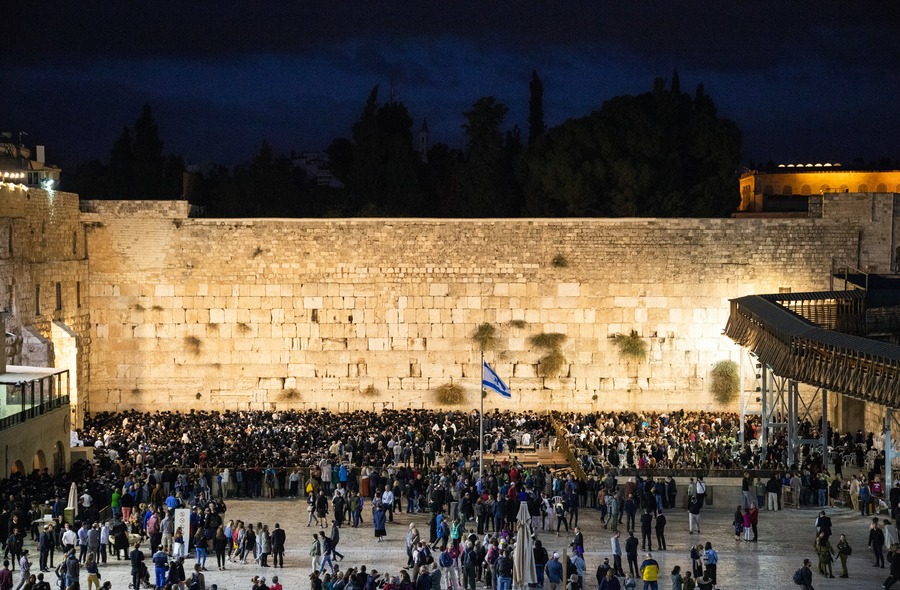
Wailing Wall at night, Jerusalem. Photo by Sander Crombach on Unsplash
Hanukkah Celebration 2021 Across Israel
Haifa, Israel’s third-biggest city and the center of northern Israel, is a very ‘mixed’ place, with Jews, Muslims, and Christians living next door to each other. This festival takes place each December to officially mark Christmas, Hanukkah, and Ramadan. Taking place in Wadi NisNas and the German Colony, kids can enjoy music, food stands, street celebrations, and even a circus!
Visit Safed - this charming mystical city in Upper Galilee is the perfect place to take a Hanukkah break. This year, Safed is offering dozens of activities, including puzzle rooms, a glassblowing workshop, tours of the Old City, and even the chance for kids to look at old Israeli stamps.
Spend a day at Chevel Modiin - light candles as the ancient Jews did, at Chevel Modiin, which is the place the Maccabees once lived and worked. Kids can make wooden dolls and candles, enjoy a petting zoo, harvest olives, and stamp coins in a restored Hasmonean village.
Whatever you do this Hanukkah, however, here at Bein Harim we wish you all a very happy holiday. In these difficult times, let us all hope and pray that the light shines through!
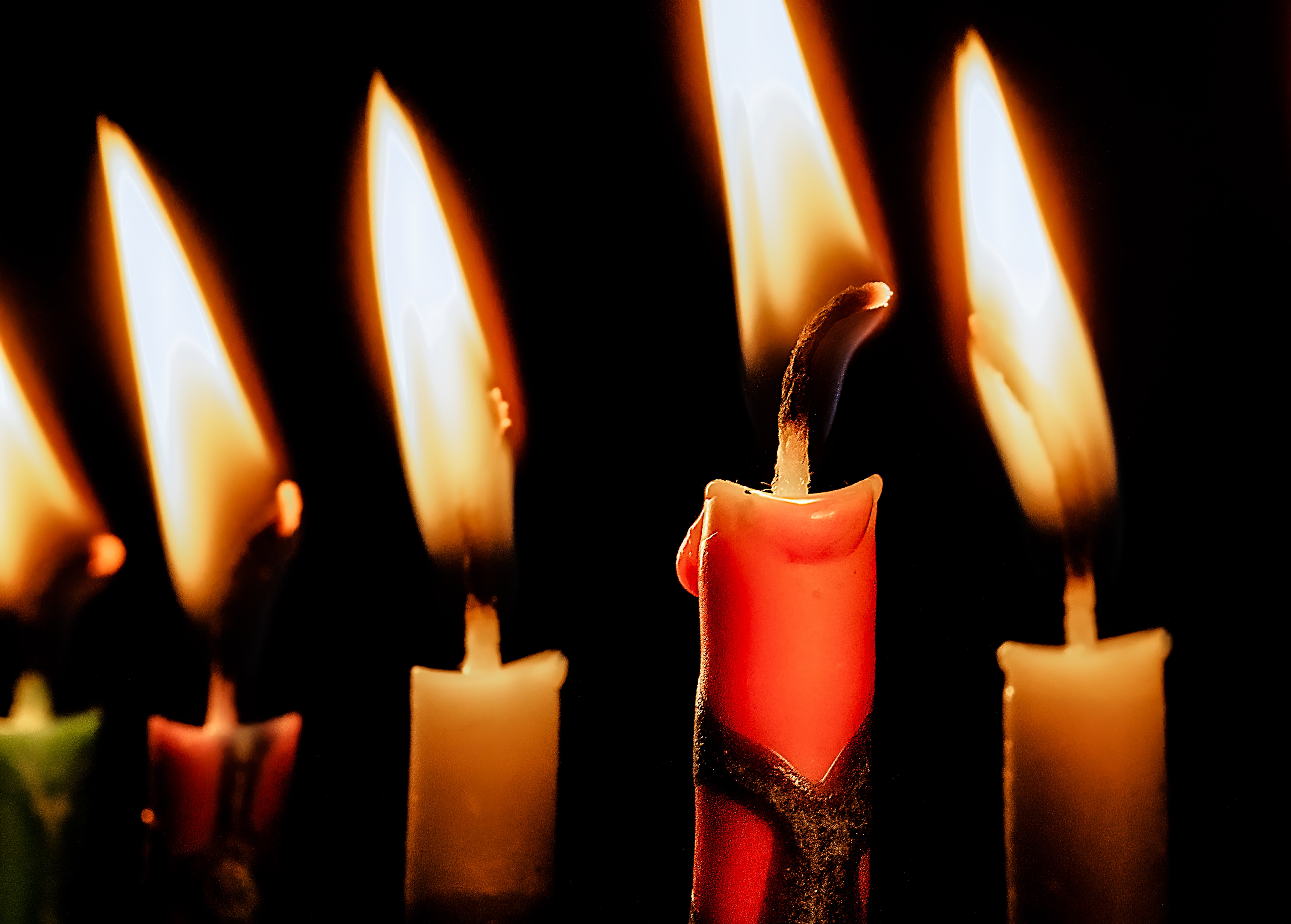
Hanukkah candles. Photo by Robert Zunikoff on Unsplash
 Login / Register
Login / Register
 Contact Us
Contact Us
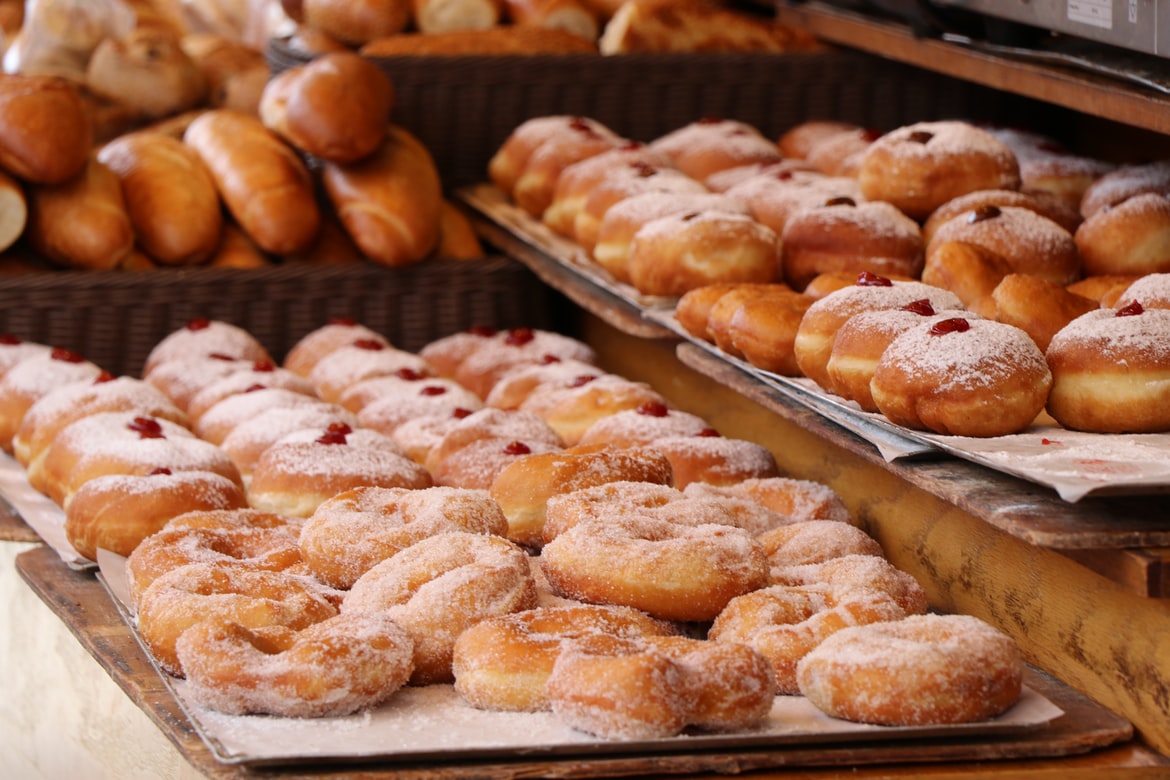
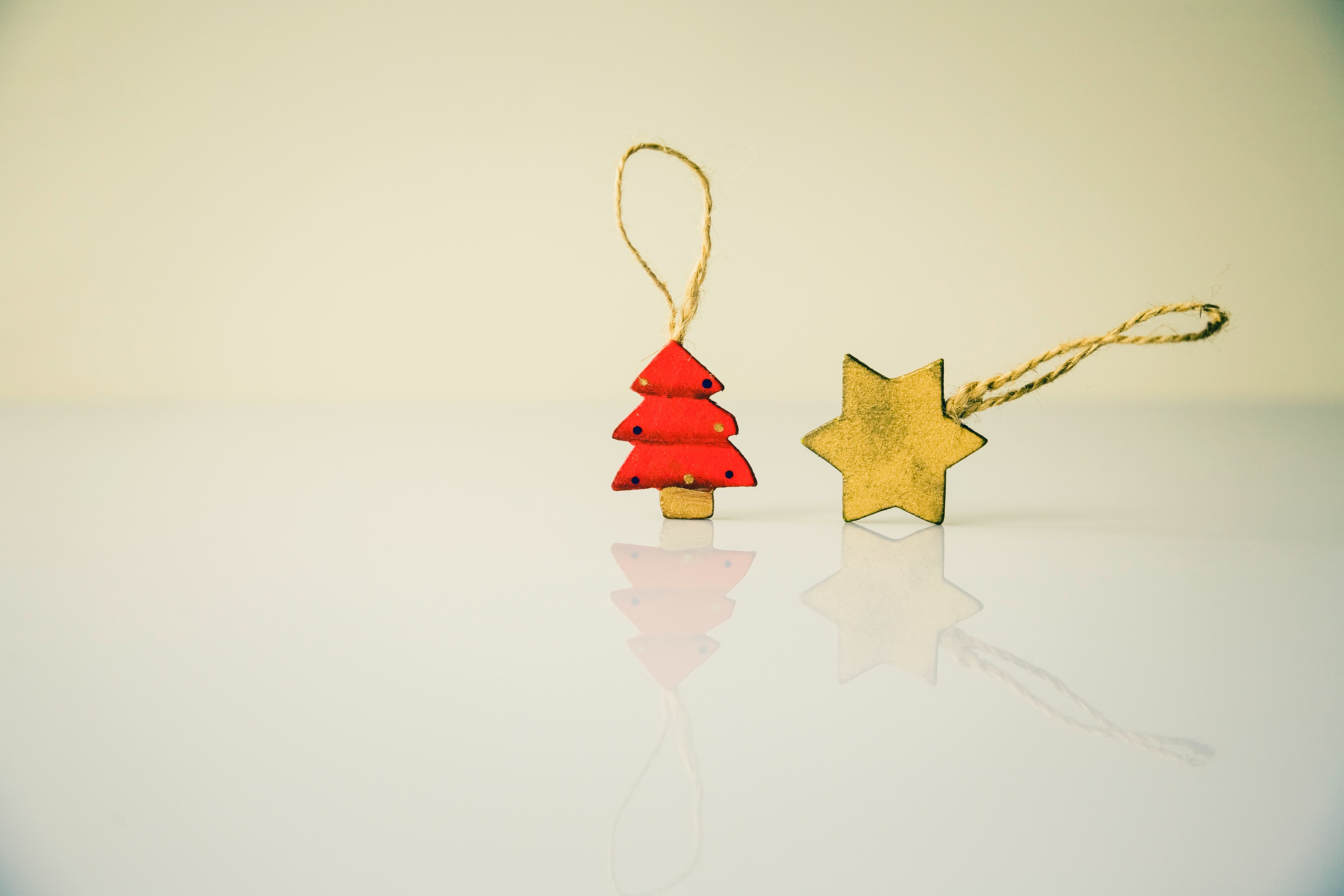
 Certificate of Excellence
Certificate of Excellence Guaranteed Departure
Guaranteed Departure Low Prices Guaranteed
Low Prices Guaranteed 24/7 Support
24/7 Support




